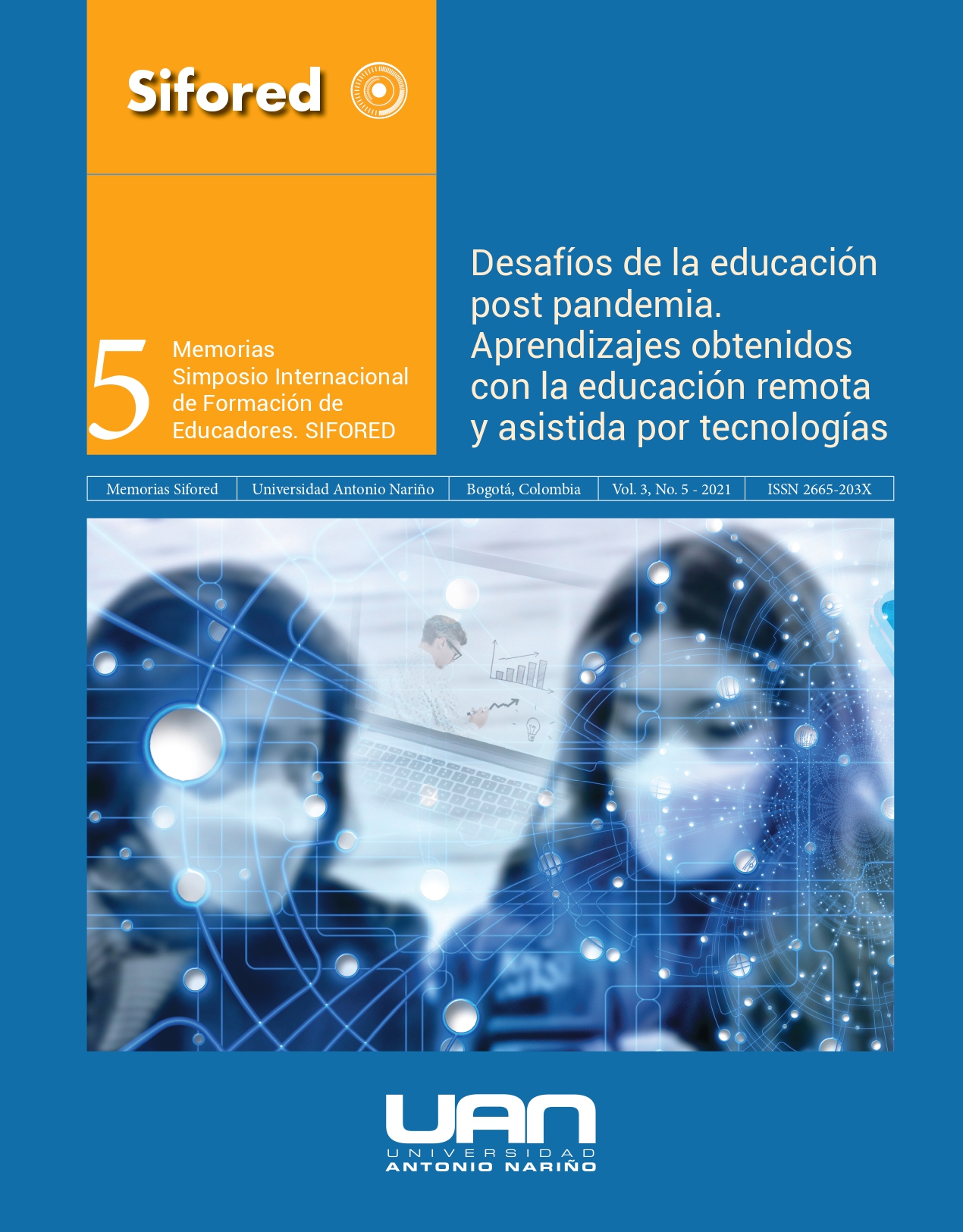Indagación de las habilidades científicas en estudiantes de grado segundo: una experiencia de aula desde el trabajo en casa durante la pandemia
Keywords:
pandemia, habilidades científicasAbstract
Working and strengthening scientific skills from the first grades of elementary school, bring benefits to the students in the perception and understanding of their context and prepares them, to be critical agents in the face of what happens around them. It is for the above, that this research is carried out, seeking to strengthen scientific skills from the development and application of a diagnostic test that allows us to identify the level of second grade students, group 201 of an official institution from the south of Bogotá, Colombia. The methodology was carried out in three phases: the elaboration of the diagnostic test, the validation of the instrument and its application. The partial results obtained through this, reveals that children are not using scientific skills due to the lack of their own activities to develop and strengthen the different scientific skills that are approached when they work on Natural Sciences in the school context.
Downloads
References
Aguilar Mosquera, Yirsen & Mejía, Luz & Mercedes, María. (2017). Mallas de Aprendizaje Ciencias Naturales y Educación Ambiental. Grado 2°
Arriaga, M. (2015). El diagnóstico educativo, una importante herramienta para elevar la calidad de la educación en manos de los docentes. Atenas, 3.
Buisán, C., & Marín, M. (1987). Cómo realizar un diagnóstico pedagógico.
Daza, S., & Quintanilla, M. (2017). La enseñanza de las ciencias naturales en las primeras edades. V.5. In Formacion Universitaria (Vol. 26, Issue 1). http://www.chubut.edu.ar/descargas/secundaria/congreso/ACCESO/R1857_Torres.pdf%0Ahttp://environment.yale.edu/climate/files/ClimateChangeKnowledge2010.pdf%0Ahttp://www.lareferencia.info/vufind/Record/AR_377d151537920b3d279312d2ce82643a
Di Mauro, M., Furman, M., & Bravo, B. (2015). Las habilidades científicas en la escuela primaria: un estudio del nivel de desempeño en niños de 4to año. Revista Electrónica de Investigación En Educación En Ciencias, 10(2), 1–10.
Furman, M. (2016). Educar mentes curiosas: la formación del pensamiento científico y tecnológico en la infancia. Santillana. https://doi.org/10.25115/ecp.v10i20.1015
Perez, D., Londoño, M., & Mejia, C. (2020). El pensamiento científico infantil, experiencia de dos instituciones educativas en la educación preescolar. Universidad de San Buenaventura.
Downloads
Published
-
Abstract469
-
PDF (Español)212
How to Cite
Issue
Section
License
Copyright (c) 2022 Yeimy Acosta Leal, Marisella Buitrago Ramírez

This work is licensed under a Creative Commons Attribution-NonCommercial-ShareAlike 4.0 International License.


 Portal de Ciencia Abierta
Portal de Ciencia Abierta